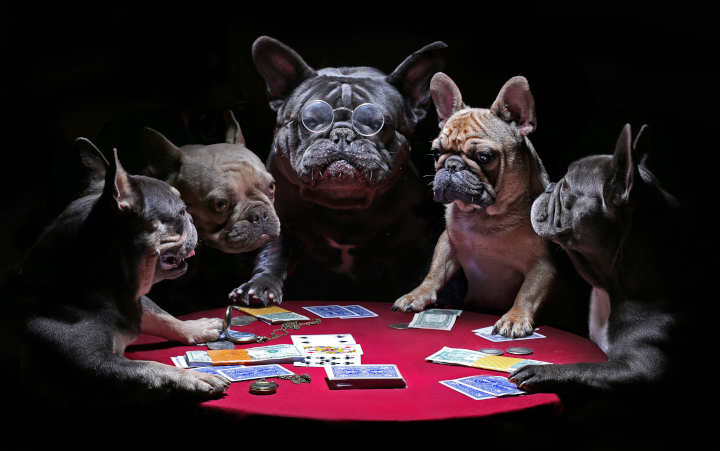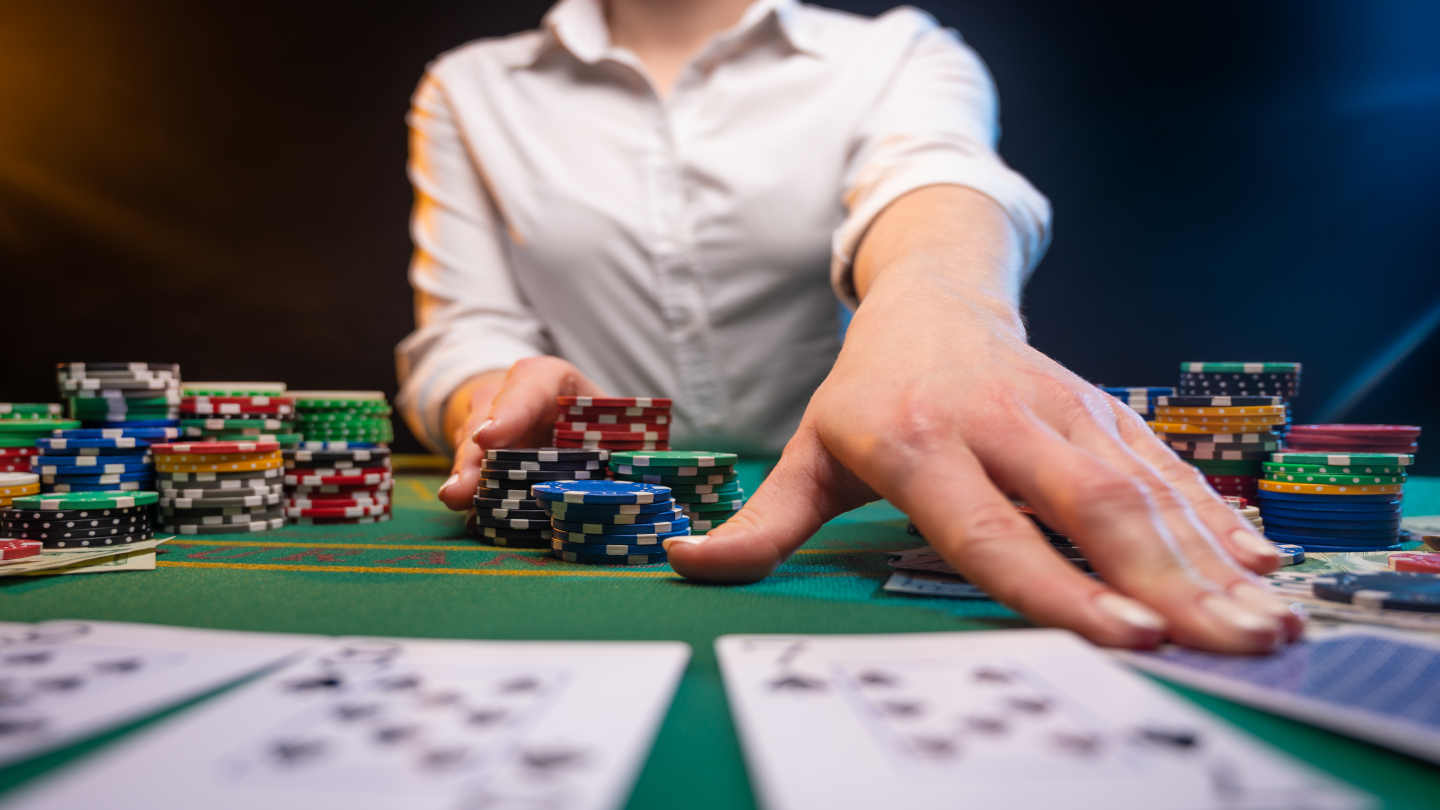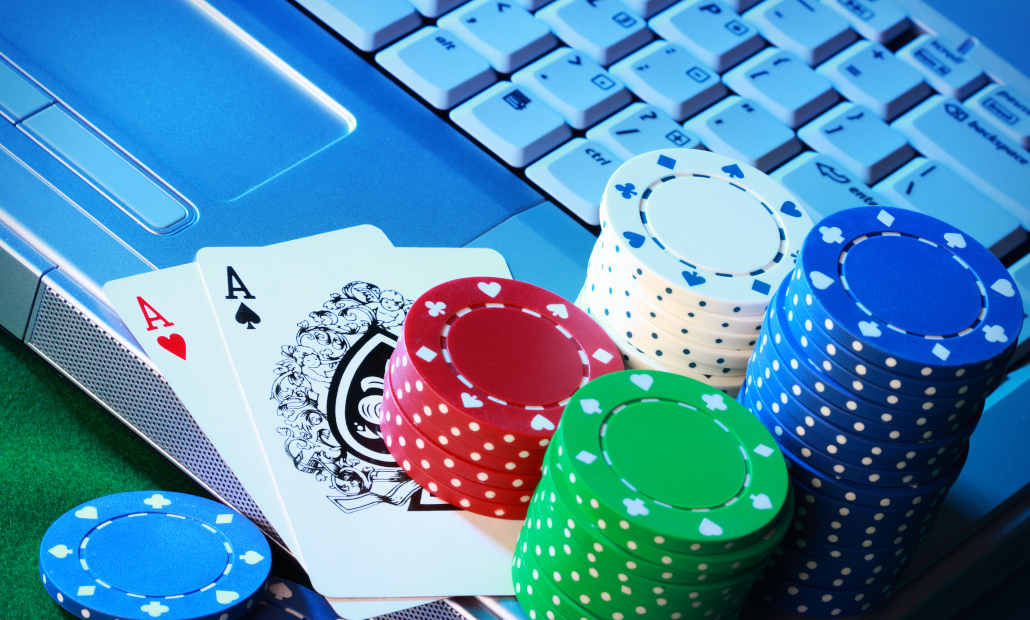Poker Tells – Learn How to Read People in Poker

15 minutes
Poker is a complex game that consists of many different elements. The math of the game is a big part, but other elements such as psychology and behavior all have their own importance.
For many years, it was considered that reading people and getting the proper poker tells from other players was the thing that separates the best poker players from mediocre ones.
While many new school players have moved completely away from trying to get any poker reads and towards playing a mathematically perfect game, the approach of reading other players and getting a feel for how strong they are is certainly not dead.
In fact, if you want to be a great live player, you should learn what is a tell in poker, how to spot poker tells, and how to interpret them.
Keeping in mind that the fundamental poker concepts are still the most important, being able to spot some common poker tells is going to help your game and improve your results without a doubt.
Before we go into specific poker tells, let’s talk about what they actually are, how you can recognize them, and how you can use them to your advantage.
What Is a Poker Tell?
Poker tells, or poker reads, are specific behaviors or actions that you can spot on other players at the table, which may indicate that they’re strong or weak, value betting or bluffing, etc.
Tells in poker can be very obvious, especially when playing against amateur players, or quite subtle when you try to figure them out on a higher level.
Amateurs tend to give off a lot more poker tells than seasoned players. They are not used to playing poker at the live tables, and their actions betray them more than they would hope.

On the other hand, even players who have been around for years still tend to give off poker reads, even if only in the form of bet sizing tells or acting out of the flow of a poker hand.
Some tells can be used on the general public, with many players having a tendency to give them off. Others may be player-specific things that you can notice by observing a particular person playing.
How to Read People in Poker
If you talk to an old-school player about the game, they will likely tell you that poker is all about knowing how to read people in poker, putting him on a hand, and getting a feel for how strong they really are.
While this is not completely true, reading people at the poker table can be a very useful skill, especially if you can do it with a high accuracy rate, which few people really can.
More often than not, people will just look for reasons to make the play they want to make instead of actually analyzing what’s going on around them.
Learning how to read people in poker takes both studying and time. You also need to realize that you will not be able to read serious players who make a conscious effort at hiding their poker tells.
All that said, I am going to cover a number of common live poker tells that you might spot the next time you play and possibly take advantage of.
To start off, I would suggest looking for these poker reads in hands you are not personally involved in and seeing whether they helped you dissect a player’s hand or if they were completely off base.
Common Live Poker Tells
Now that I have explained what poker tells are and how they can help your game, I want to teach you about some common poker tells that you can actually use in live games.
The tells I am going to introduce in this guide are the most common and most useful ones, which I know actually work and can be used.
There are many poker reads that people put too much faith into, but I am going to try to keep it to the ones I know from experience can help your game.
Player’s Appearance and Dressing Style
One of the most reliable poker tells is the one that has nothing to do with cards, poker chips, or anything else directly game-related.
The moment you sit down at the table, you can start getting poker tells based on how people look, how they are dressed, and other little visual cues.
Typically, older players are going to play a style that is more exploitable and worry less about optimal strategy. The younger players will be more likely to play a poker style closer to GTO.
Players wearing hoodies, listening to music on their iPods, and in their twenties will often be pros who are out there grinding it out and looking to play only when they have an advantage.
On the other hand, older gentlemen and even ladies at the table will be more likely to be recreational players prone to misplaying their hands, playing too wide or too tight, etc.
When it comes to the clothes they are wearing, conservative clothing choices will go hand in hand with a tight and conservative playing style. A more leisurely dress code will come from players with a more loose and aggressive style.
Mind the Table Chatter
While some poker players like to keep their mouths shut at the table, others can’t seem to stop talking. Paying attention to what’s being said can help you quite a bit.
Poker reads you can get about a player’s general approach to the game based on what they say at the table can be quite valuable.
For starters, look out for players who talk about poker in terms of ranges, minimum defense frequencies, and other advanced poker concepts. These are likely the players who know what they are talking about.
On the other hand, if you hear a player say something along the lines of: “I put you on Ace-King” after they call off three bets with pocket deuces, this is the player you will want to isolate and play against as much as possible.
Whether they like to or not, most poker players will give away more of their overall poker strategy than they want to when they talk at the table. You would be wise to keep an eye out and try to get as much info from this as possible.
Acting Weak When Strong
One of the top poker tells that bad poker players give away is acting weak when they have a very strong hand.
They can do this in many different ways, but the most common ones include things like talking about how they never hit anything and then betting out or letting out deep sighs before putting you all in.

Most players will not talk much before they fire off a huge bluff, or at least they will not talk about how weak their hand is.
On the other hand, amateur players will do anything to get a call when they have the nuts. Telling you that they busted their flush draw before putting all the chips in is a very common way they will try to “trick” you.
If you spot a player who does this to another player, make sure to make a mental (or an actual) note on this player. This is a very valuable read to have down the line.
Even if you are playing against a completely unknown player and you see them act all uncomfortable and sad, but then make a huge bet, you would be wise to fold everything but the strongest hands in your range.
Showing Their Cards to Their Friends
In live poker games, players will sometimes show their cards to the players next to them who have folded or to their friends who are there to cheer them on.
If this is the situation, you should make sure to look closely, as some players will have a very hard time hiding their hand strength in these situations. Their friends will have an even harder time, especially if they are not poker players themselves.
A smart player would not show their cards to anyone so as to avoid giving anything away. But, many amateurs don’t really understand or care about you getting poker reads off them.
If they are showing the cards before the flop, it can mean anything. However, if the flop was dealt and the player immediately showed his friend the cards, there is a very good chance that they flopped a monster.
Oscar-Worthy Performances
A little acting at the poker table can go a long way, but acting too much can really hurt you. Recreational players often think poker is all about acting, and they will put on a major show when they have big hands.
The show often starts right on the flop when they make their big hand, with every bet and raise coming only after long deliberation.
They will shuffle their chips around, look back at their cards, perhaps even make gestures that suggest they are about to fold their cards – things you’d see in a poker movie.
All of this will be followed by a raise, often announced in a very dominant voice, trying to pretend like they are just trying to get you to fold your cards.
In reality, folding your cards in such a situation is often the best choice. The act is much more likely to represent them having a monster hand than an actual bluff.
Weak or Forceful Chip Tosses
For a novice poker player who doesn’t really know how to put on a poker face, the game is all about acting on every move you make.
This means that all the moves will be made on a very basic level where strong means weak and weak means strong, with almost no exceptions.

If a player you believe is weak in hiding his poker tells throws their chips into the pot like they mean it, they will usually be bluffing.
The same guy might just slide in his betting or calling chips in another hand, and this will often mean they have the absolute nuts or close to it.
Make sure not to put too much confidence into this read before you figure out who is who at the table. Pro players might use these as reverse tells or might simply always put in their chips gently or more forcefully.
The Chatty Player is Often Bluffing
Some players like to talk a lot, as those familiar with William Kassouf’s table antics will tell you. However, most players only talk a lot when they feel like they need to.
More often than not, a player who talks a lot is doing so because they are bluffing, and they want to convince you that their hand is the nuts.
Savvy poker players will also often talk when they have a big hand, but an amateur is more likely to ask you what you have or tell you they will show you their cards when they are actually bluffing.
Table talk is a dangerous poker tell to put faith into as even some amateurs sometimes use it to level you and trick you. I would suggest only using it to the full extent when you actually have a very good read on the particular player in question.
Nervous Behavior Cues
If you watch high-stakes poker tournaments and cash games, you will notice that players who come from the internet background often wear scarfs, sunglasses, and hoodies at the table.
While some of them overdo it and can be obnoxious at times, there is actually some merit to these things.
When we play poker, our body releases adrenaline, serotonin, and other hormones. It will act in many different ways, some of which we don’t want our opponents to spot.
Some very visible physical poker tells that can come as a result of a player making a big bluff include throbbing neck veins, gulping motions, increased heart rate, dilated pupils, etc.
If you learn to pay attention to such poker tells, you may become able to pick up on actual strength or weakness from your opponents by monitoring how their body behaves in different situations.
Players who wear protective gear like hoodies may be harder to read this way. Luckily, there will be plenty of fish out there who are completely oblivious of their red face and pumping neck veins giving away their bluff.
Tells in Online Poker Games
Poker tells and reads may be most applicable in live poker games, but that does not mean that there are no ways to use them in online poker as well.

Reads in online poker are quite a bit different since you cannot see the players you are playing against. They still exist, though, and can be used to improve your poker results.
If you play poker online more than you do live, and the earlier poker tells did not help you, here are a few common poker tells for online poker that you may be able to incorporate into your game.
The Instant Check
Online poker rooms allow players to take action beforehand by clicking various boxes such as check/fold or check/call.
If the action folds to a player and they check faster than any human could possibly be expected to, it probably means that they checked the check box before the action was on them.
Of course, wanting to check the hand does not necessarily mean that they don’t have a hand. However, more often than not, it will mean that they are not too happy with their cards.
What’s even more, serious poker players don’t really use this function too often. They like to keep their options open and are happy to monitor the action all the way through.
If you are up against one opponent and they instantly check, you may as well go ahead and fire a bet to get them off their hand and move on to the next one.
The Limp Re-Raise
Limping is really not too common in online poker games, but it certainly does happen. However, a play that happens even less common but is a very reliable poker tell is the limp re-raise.
Limping can mean that the player just wants to see a cheap flop, and amateur players will sometimes limp their medium-strength hands.
However, when a player limps and then decides to come over the top once you have raised, they will have a monster hand almost every time.
I am talking about the likelihood of more than 90% that they have QQ or better or AK, which means you can fold all your hands but the absolute nuts to this play and never feel exploited.
If you are playing extremely deep-stacked, you can consider calling such re-raises with speculative hands to try and win a huge pot against their pocket aces when you do hit a huge flop for your hand.
The Donk Lead
The term donk bet was actually coined by the online poker community, and it refers to a bet that is outside of the regular game flow.
For example, if you have opened the pot and a player called you out of position, them leading into you on the flop would be considered a donk bet.

The donk lead is usually quite weak, representing at best a top pair with a weak kicker, and at worst, some kind of a weak draw or bottom pair.
Very few players will donk lead sets or two pair simply because they will want to let you fire your c-bet and give them more money.
If you raise every donk lead you ever face, you will probably end up making a lot of money from this play alone.
Do keep in mind that some savvy players can recognize your tendency to do so, which is why you must be cautious with who you are raising as well.
Ranting in the Chat Box
Let’s face it, serious online poker players don’t write anything in the chat, and that’s just the nature of things in the online poker world.
Players who rant about bad beats and suck-outs or berate other players in the chatbox are usually the biggest fish around. They are the ones you want to be playing pots against.
What’s even more, a player who is writing all sorts of nonsense in the chat is probably on a massive tilt. You may be able to exploit this and win some huge pots against them while they are still raging.
I do recommend keeping your chat box up at all times and seeing which players are typing in there to recognize fish really fast.
Limp-Calling Hands
While some relatively serious players do it in live poker games, no good player in online poker games is going to limp their hand and then call a raise, except in blind-versus-blind situations.
If you see a player consistently limp in early positions and then call raises, you can be sure that this player is going to play pretty bad poker all the way.
Try to isolate this player to make sure to play as many hands as you can with them, and play aggressively so you can exploit their weak and passive tendencies.
The River Check-Raise
River bluffs are generally not too common in poker, but when they are, they usually come in the form of the aggressive player continuing their aggression or the one who was calling firing a bet when a scare card comes.
The river check-raise, however, is a poker tell that you can use with quite a high degree of certainty, and it almost always represents the virtual nuts.

Very few players will come up with the check-raise line on the river as a bluff. If it does happen once in a blue moon, it is certainly not something you should expect to see too often.
If you get check-raised on the river after you make a value bet, you can pretty much fold anything but the very best hands and feel good about it.
- Poker Squeeze Play – Which Hands Make the Most Sense for Squeezing? - August 10, 2023
- How to Play Low Pocket Pairs in Texas Hold’em - July 29, 2023
- How to Make Deep Runs in MTTs More Often - July 22, 2023














